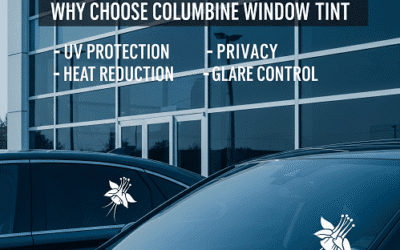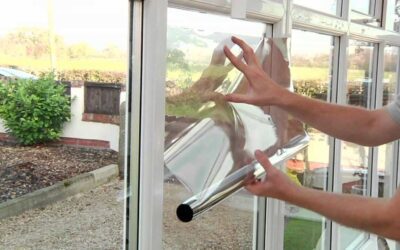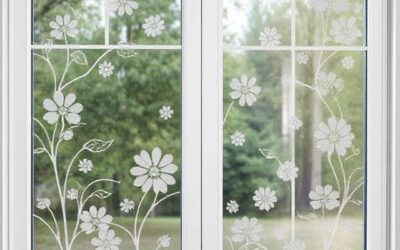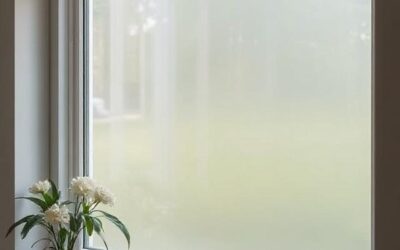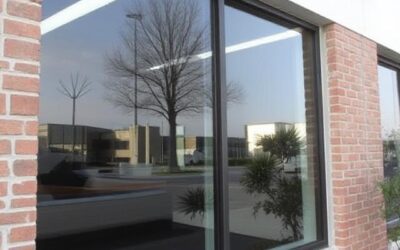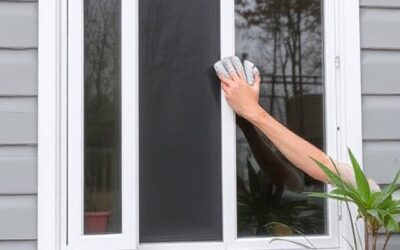Residential Window Tinting: A Sustainable Solution for Eco-Friendly Homes
Residential window tinting is rapidly becoming one of the most efficient, practical, and aesthetically pleasing solutions for homeowners who are committed to sustainable living. As more individuals seek ways to reduce energy consumption and minimize their environmental impact, window films offer an innovative and affordable option to make homes more eco-friendly without sacrificing comfort. Window tinting not only reduces energy costs but also enhances indoor comfort by improving insulation, controlling heat, and preventing harmful UV rays from entering your home.
The Environmental Impact of Traditional Windows
Many traditional windows lack the energy efficiency needed for modern-day sustainability practices. Single-pane or untreated windows allow significant heat transfer, meaning that during hot summers, heat can easily enter the home, and during colder months, warmth from inside the house can escape. As a result, homeowners often rely heavily on heating and cooling systems, which increases energy consumption and utility bills. Additionally, excessive sunlight can lead to furniture and flooring deterioration due to harmful UV exposure, increasing the need for replacements and further contributing to environmental waste.
Types of Residential Window Tinting Films
Window tinting offers homeowners several film options, each with specific benefits tailored to individual needs. These options allow for personalization in how homes achieve energy efficiency while also accommodating the unique weather conditions of different regions.
Solar Control Films
Solar control films are specifically designed to reduce the amount of solar heat that enters a home. By reflecting and absorbing sunlight, these films help maintain cooler indoor temperatures during the summer months. Solar films also protect against UV rays, preventing damage to furniture, artwork, and flooring. This film can reduce cooling costs and maintain indoor comfort by lowering the demand on air conditioning systems.
Low-E (Low Emissivity) Films
Low-E window films are ideal for homes in regions with fluctuating seasonal temperatures. These films provide year-round insulation by reflecting heat back into the home during winter, helping reduce heating costs, while preventing heat from entering during summer, thereby lowering cooling costs. Low-E films are designed to minimize heat loss without blocking natural light, making them an excellent choice for homeowners looking to enhance energy efficiency without darkening their living spaces.
Decorative Window Films
Decorative window films provide aesthetic appeal in addition to energy efficiency. Homeowners can choose from a wide range of patterns, frosted textures, or colored tints to enhance their interior design while benefiting from the solar protection that all window films offer. Decorative films are ideal for privacy while still allowing natural light into the space, making them a popular choice for bedrooms, bathrooms, and living areas.
Security Films
Security films offer the dual benefit of safety and energy efficiency. These films are thicker and designed to hold broken glass together in case of an attempted break-in or natural disaster. Besides the added security, these films also provide UV protection and thermal regulation, helping homeowners reduce energy costs without compromising the safety of their homes.
How Window Films Enhance Energy Efficiency
Residential window tinting has emerged as a critical factor in creating an energy-efficient home. Window films are a cost-effective alternative to window replacement and provide substantial energy savings for homeowners. These films are designed to enhance the thermal performance of windows, reducing both heat loss and heat gain, depending on the season.
Summer Heat Reduction
During summer, solar films and Low-E window films work to block a significant amount of the sun’s heat from entering the home. By reflecting solar radiation and absorbing some of it, these films help maintain cooler indoor temperatures, which in turn reduces the need for air conditioning. This reduction in reliance on cooling systems results in significant energy savings.
Winter Heat Retention
In colder months, Low-E films play a crucial role in preventing heat loss. By reflecting indoor heat back into the home, these films reduce the workload on heating systems, lowering energy consumption and utility costs. This feature is particularly useful for homeowners looking to create a more energy-efficient space without investing in costly window replacements.
Weather Protection Benefits of Window Tinting
One of the often-overlooked benefits of residential window tinting is its ability to protect homes from various weather conditions. Whether facing the intense summer heat, chilly winters, or extreme storms, window films offer year-round protection and enhance the resilience of homes.
UV Protection
Exposure to the sun’s harmful UV rays can damage your home’s interior, fading carpets, curtains, furniture, and even artwork. Window tinting can block up to 99% of UV rays, safeguarding your possessions without sacrificing the natural light that brightens your living space. This protection also helps prevent harmful UV radiation from affecting the skin, making your home safer for everyone inside.
Glare Reduction
Glare can be uncomfortable and reduce visibility inside the home, particularly during peak sunlight hours. Window films reduce the amount of glare entering the home without completely blocking sunlight, providing a more comfortable environment for activities like watching television, working, or reading.
Protection from Extreme Weather Conditions
In areas prone to storms or high winds, window films—particularly security films—add an extra layer of protection. In the event of severe weather or a natural disaster, security films help hold shattered glass together, reducing the risk of injury and property damage. This feature makes window films an excellent investment for homeowners living in regions with unpredictable weather.
Improving Indoor Air Quality with Window Tinting
When it comes to creating a healthy indoor environment, few people consider the role that window tinting plays in maintaining indoor air quality. However, window tinting indirectly contributes to cleaner air and healthier living spaces.
Preventing Off-Gassing
Prolonged exposure to UV rays can cause materials inside the home—such as carpets, furniture, and paint—to break down and release harmful chemicals into the air, a process known as off-gassing. By blocking the sun’s UV rays, window films help preserve interior materials, reducing the likelihood of off-gassing and promoting healthier indoor air quality.
Regulating Indoor Temperature
Inconsistent indoor temperatures can lead to discomfort and potentially aggravate certain health conditions. Window films help maintain consistent temperatures by preventing excessive heat gain or heat loss, creating a more balanced indoor climate. This consistency contributes to a healthier environment, especially for individuals sensitive to extreme temperature changes.
Window Tinting and Interior Design
Window films are no longer just about energy savings and UV protection; they can also complement your home’s interior design. The right window tinting solutions can enhance the aesthetics of your home while contributing to overall energy efficiency.
Enhancing Privacy with Style
Decorative window films offer homeowners the opportunity to improve privacy without sacrificing style. These films come in various designs, textures, and opacities, allowing homeowners to customize their windows to suit their unique preferences. Decorative films are a popular choice for bathrooms, kitchens, and other areas where privacy is needed but natural light is still desired.
Blending Functionality with Aesthetics
Window tinting films can seamlessly integrate with any interior design, offering a clean, modern look while providing functional benefits. For instance, frosted or patterned films add visual appeal to windows while controlling the flow of sunlight. Tinted films can also soften harsh daylight and create a more comfortable living environment without the need for heavy curtains or blinds.
Cost Savings from Window Tinting
Residential window tinting offers long-term financial benefits, making it a valuable investment for any homeowner. While the initial installation cost of window films may seem like an expense, the return on investment through energy savings, preservation of home furnishings, and protection from the elements more than justifies the cost.
Reduced Energy Bills
By improving a home’s insulation and minimizing heat transfer, window tinting reduces the demand on heating and cooling systems. Homeowners can expect to see a significant reduction in their utility bills, particularly during peak seasons when heating or air conditioning usage is high.
Preserving Interior Furnishings
Constant exposure to sunlight can cause irreversible damage to furniture, flooring, and other home décor items. UV rays cause colors to fade, materials to weaken, and surfaces to deteriorate over time. Window films offer protection from this damage, preserving the longevity and appearance of your home’s interior furnishings, which means fewer replacements and less environmental waste.
Cost-Effective Alternative to Window Replacement
Replacing windows can be an expensive and labor-intensive process. Window films provide a cost-effective alternative to window replacement, enhancing the energy efficiency and performance of existing windows without the need for major renovations. This solution offers significant savings, particularly for homeowners with large windows or multiple panes throughout the house.
Sustainability and Window Films
As eco-friendly building practices gain momentum, residential window tinting plays a critical role in helping homeowners reduce their carbon footprint. Window films are an environmentally responsible choice, allowing homeowners to cut down on energy usage, reduce waste, and improve indoor comfort.
Meeting Green Building Standards
Many homeowners are turning to energy-efficient solutions that align with green building standards. Window films contribute to these efforts by enhancing the thermal performance of windows, reducing the need for additional heating and cooling, and minimizing the environmental impact of energy consumption. For those looking to obtain green building certifications or simply reduce their home’s carbon footprint, window tinting provides a practical and effective solution.
How to Choose the Right Window Tinting Solution for Your Home
When selecting the right window film for your home, several factors should be considered to ensure optimal energy efficiency, protection, and aesthetics. These factors include:
- Climate: Homes in hotter climates may benefit from solar control films, while Low-E films are ideal for areas with extreme seasonal changes.
- Home Orientation: Windows that receive direct sunlight for long periods may require higher-performance films with better solar control.
- Aesthetic Preferences: Choose decorative films or tinted films based on how they complement your interior design.
Consulting with a professional tinting service like Columbine Window Tint can help ensure that you select the right solution based on your specific needs.
The Role of Columbine Window Tint in Promoting Sustainable Living
Columbine Window Tint offers a range of residential window tinting solutions that align with sustainable living practices. By offering films that reduce energy consumption, improve indoor comfort, and protect homes from the elements, Columbine Window Tint is committed to helping homeowners create eco-friendly environments. Their expertise in window tinting ensures that every customer finds the ideal solution for their home, enhancing both energy efficiency and aesthetic appeal.
Conclusion: Transforming Your Home into an Eco-Friendly Space
Residential window tinting is a powerful tool for homeowners looking to create a sustainable, energy-efficient, and comfortable living environment. By reducing energy consumption, protecting interiors from UV damage, and enhancing privacy and aesthetics, window films offer an affordable and effective solution for eco-conscious homeowners. With a wide range of options available, homeowners can customize their window tinting to suit their specific needs and preferences, all while contributing to a more sustainable future.
